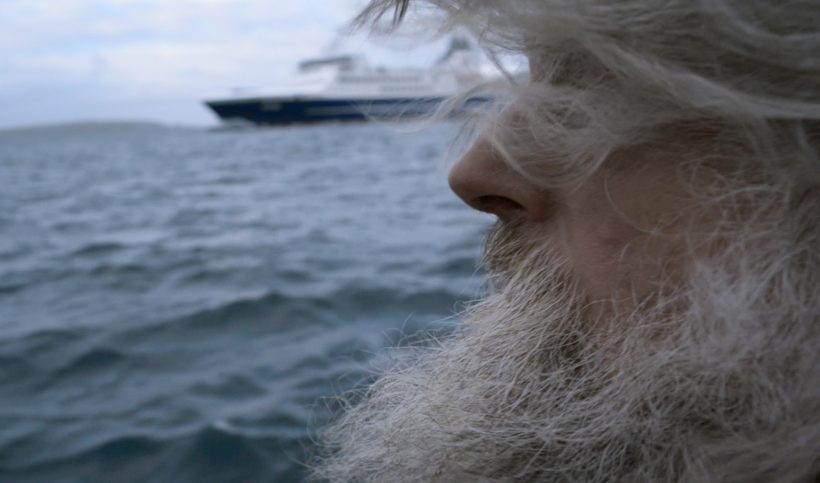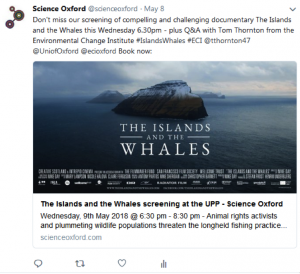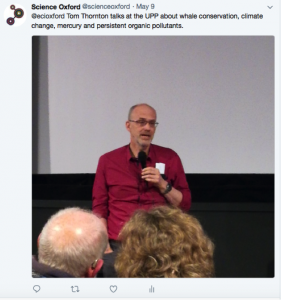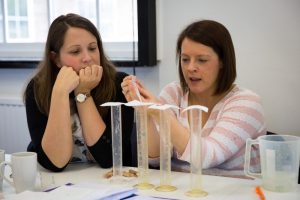From Oxford to Whales, celebrating Green Week
Friday 15th June 2018

As Oxford Green Week approaches (16th – 24th June), here at Science Oxford HQ we’ve been thinking about green issues such as the environment, climate change or recycling, up-cycling and re-using! So – look out for news articles coming up over the next week, where we find out more about what some of our team have been doing and planning.
Last month, we teamed-up with the Ultimate Picture Palace to screen The Island and the Whales – a moving film that explores the conflict between the Faroese cultural tradition of whaling and the quest for animal rights among some international animal rights advocates and environmental impact.

The film was followed by a Q&A with Tom Thornton from the Environmental Change Institute in Oxford. Our Events Officer Rowena Fletcher Brown reports ….
The Island and the Whales featured some difficult content, for example the impact of increasing mercury concentrations in whales and its effect on human health. In particular, the film portrayed how hard it is to impose change because of scientific evidence, and how cultural changes need to be gradual, and based on an understanding of local motivations, traditions and habits. This was perhaps best illustrated by the local Faroese doctor who felt torn between his tradition and his trade. Nevertheless, much of the science was not explicitly discussed – so of course, we did our best to bring it bubbling to the surface!
In our post-movie bite-sized science chat with Tom, chaired by teacher and science communicator Jase Taylor, we talked about how climate change drives migration away from traditional habitats, changes animal fertility, and effects food supplies – initially increasing ocean productivity and food supply in northern waters. We also had a think about sustainable farming and harvesting of natural resources: the challenge of striking a balance between what we take from the earth and its recovery time, and the ethics of imported food.

Tom says: “I enjoyed the opportunity to meet to discuss the film with the audience.”
“I emphasised that subsistence whaling in the North Pacific and North Atlantic is now carefully regulated by collaborative management bodies that have been successful in not only conserving cultural traditions of whaling but also improving the science and practice of whale conservation. In fact many of the species hunted are doing well in terms of numbers, with populations often increasing.”
Questions were surprisingly uncontroversial for a topic that can so often get people fired up, and showed an audience keen to understand the facts that the film left out. One audience member, for example, asked why mercury was accumulating more in whales than, say, fish or sea birds?
As Tom explained, this is partly because larger animals simply do accumulate more pollutants than smaller ones. However, some pollutants, like ’POPs’ (persistent organic pollutants) dissolve well in fats and badly in seawater, so they accumulate in plastic debris in the ocean and, when animals swallow these debris, in body fats.
To take part in similar discussions next time, look our for our film showing with the Ultimate Picture Palace on 10th October.
Oxford Green Week is a county-wide summer festival which uses culture, creativity and community to inspire local people to take action against climate change. Find out more about Oxford Green Week here.



